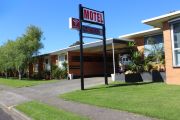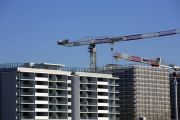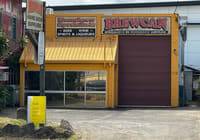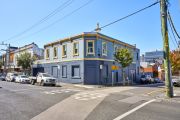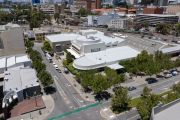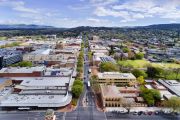
WeWork’s exit opens opportunity for new co-working hub
Sydney property veteran Phillip George has opened up a new own co-working business to fill the vacuum left by WeWork, which vacated his office building at 66 King Street last year just before its US parent filed for bankruptcy.
WeWork’s exit at King Street in the Sydney CBD was part of a global push from the company to renegotiate leases and reduce its footprint. The former Wall Street darling officially emerged from bankruptcy last week.

Left with an empty space, Mr George opted to launch his own co-working hub – King Street Studios – rather than bring in a new tenant. For Mr George, it was an opportunity to capitalise on shifting work preferences, which, he believes, includes more use of workspaces that are not traditional offices.
“I have been around for a long time and I think we’re just going through a passage of time. I’ve seen a number of downturns in my tenure, and I believe people will be back to the office sooner than you think,” Mr George said.
“Businesses are under stress from a profitability point of view and productivity is at a low, and I think that unemployment will start to rise in the foreseeable future. Business will look to employees to perform better, get better productivity and be in the office. You cannot, as a junior person in the workforce, move up the corporate ladder by working from home.”
Along with contractions at WeWork and IWG and the closure of ASX-listed Victory Offices, the footprint of co-working spaces across all east coast CBDs has shrunk, according to CBRE research.
The Sydney CBD experienced the largest decline, going from 173,000 square metres to 164,000 square metres year-on-year – a 5.2 per cent decrease. The Brisbane CBD suffered an 8.2 per cent decrease to 45,000 sq m, while Melbourne CBD’s co-working footprint was relatively stable, falling by 1000 sq m to 96,000 sq m.
CBRE’s Asia Pacific alternatives head Sidharth Dhawan said that despite the drop in the footprint of co-working spaces – the result of operators rationalising their portfolios – more landlords were viewing flex and “third space” as a key amenity in their office buildings.
“Anecdotally, we’ve observed cautious optimism in the market, with providers continuing to expand in-fill markets,” Mr Dhawan said.
“A key theme over the past year or so is landlords using flex space as a carrot to help employees return back to the office. Another one is landlords appointing the flex space provider to manage the common amenity areas/meeting spaces on behalf of the landlord.”
Outside of 66 King Street, Mr Dhawan cited new co-working spaces such as The Great Room at 85 Castlereagh Street, The Commons at 32 York Street, and JustCo at Emporium Melbourne, as examples of this trend.
From no tenant to nearly full occupancy
When King Street Studios took over the space, tenants provided feedback that they enjoyed working in co-working spaces, but WeWork had provided inconsistent internet and spaces were not cleaned often enough, according to Mr George.
“Coming through COVID, people weren’t coming to work and so you’ve got a cost of doing business – and if people aren’t in the building, you cut back on service to manage your bottom line,” he said.
“We were fortunate enough that WeWork made the decision globally to exit, and so we just picked up from that point. It would be wrong for me to condemn them on any of their operational style, but the way we run our organisation is I walk the building at least twice a week and have coffee with the tenants.”
For Mr George, the bet has provided dividends so far – King Street Studios has retained most of its tenants after he pitched them a “landlord-owned level of service”. Only beverage giant Asahi and start-up super fund Grow Inc have opted to move elsewhere.
The new hub has also signed HR software firm HiBob and insurance firm Marketlane as new tenants, and is finalising two more tenant deals, which would result in the space being fully occupied.

